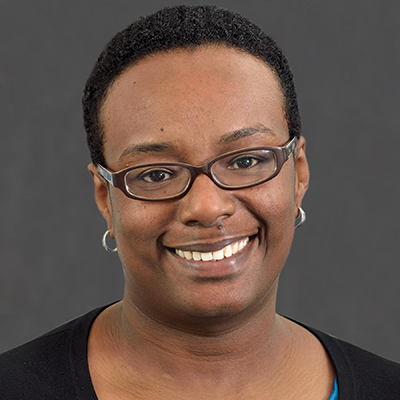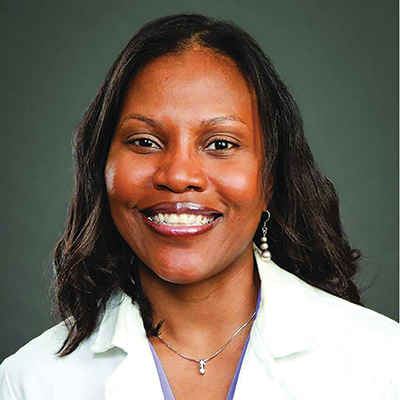Montgomery, Alahari honored by ASCB; Carr moves to UW
Montgomery, Alahari honored by ASCB
The American Society for Cell Biology has announced its 2021 slate of award recipients and fellows. Two ASBMB members are on the list.

Beronda Montgomery, the MSU Foundation Professor at Michigan State University, will give the Mentoring Keynote Lecture at ACSB's 2022 meeting. The lecture highlights "an individual who exemplifies mentoring by their impact on the training of scientists and scholars who belong to underrepresented groups."
Montgomery's lab studies photomorphogenesis, or the growth and development responses of photosynthetic organisms such as plants, algae and cyanobacteria to light cues. Simultaneously, Montgomery applies this line of thinking, investigating how individuals perceive and respond to their environments, to best practices in research mentoring and leadership. She is the author of a recent book, "Lessons from Plants."

Suresh Alahari, a professor at Louisiana State University, is a member of the 2021 cohort of ASCB fellows. His lab studies cancer, with particular focus on a protein called nischarin, which they identified. They study tumor cell migration and adhesion, along with how microRNAs are misregulated in breast cancer.
Alahari earned a master’s degree in human genetics from Andhra University in India, and his Ph.D. in molecular biology at Drexel University. After postdoctoral research at the University of North Carolina, Chapel Hill, he joined the faculty there. He has worked at the Louisiana State University Health Sciences Center since 2004.
He is a fellow of the American Academy for the Advancement of Sciences.
Carr moves to UW
Rotonya Carr, a physician–scientist who was until recently an assistant professor of medicine and director of the liver metabolism and fatty liver program at the University of Pennsylvania, has moved to the University of Washington in Seattle. Starting Oct. 1, she is heading the university's division of gastroenterology.

Carr cares for hepatology patients and leads a lab that studies the pathophysiology of fatty liver diseases. Her team is particularly interested in the effects of alcohol on ceramide metabolism and in how proteins associated with lipid droplets affect the development of disease.
After earning her MD at Cornell University and completing a residency at Massachusetts General Hospital, Carr spent four years as a practicing physician before returning for fellowship training in gastroenterology at Penn. She joined the faculty at the conclusion of that three-year training period and has worked at Penn for the past ten years.
She was a member of the first class of junior associate editors of the Journal of Lipid Research and of the first cohort of Lina Obeid memorial awards for young investigators from the International Ceramide Committee.
Enjoy reading ASBMB Today?
Become a member to receive the print edition four times a year and the digital edition monthly.
Learn moreGet the latest from ASBMB Today
Enter your email address, and we’ll send you a weekly email with recent articles, interviews and more.
Latest in People
People highlights or most popular articles

2026 ASBMB election results
Meet the new Council members and Nominating Committee member.

Simcox wins SACNAS mentorship award
She was recognized for her sustained excellence in mentorship and was honored at SACNAS’ 2025 National Conference.

From humble beginnings to unlocking lysosomal secrets
Monther Abu–Remaileh will receive the ASBMB’s 2026 Walter A. Shaw Young Investigator Award in Lipid Research at the ASBMB Annual Meeting, March 7-10 in Washington, D.C.

Chemistry meets biology to thwart parasites
Margaret Phillips will receive the Alice and C. C. Wang Award in Molecular Parasitology at the ASBMB Annual Meeting, March 7-10 in Washington, D.C.

ASBMB announces 2026 JBC/Tabor awardees
The seven awardees are first authors of outstanding papers published in 2025 in the Journal of Biological Chemistry.

Decoding how bacteria flip host’s molecular switches
Kim Orth will receive the Earl and Thressa Stadtman Distinguished Scientists Award at the ASBMB Annual Meeting, March 7–10, just outside of Washington, D.C.
